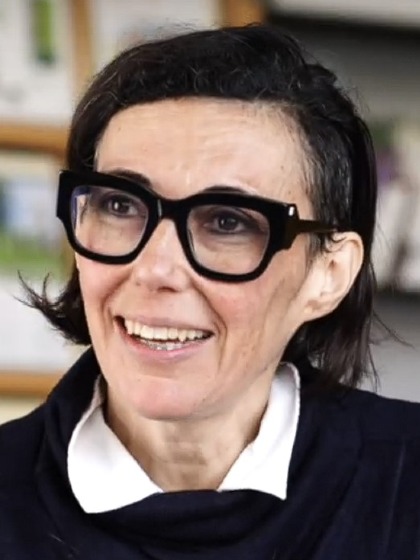L. (Luana ) Silveri

TINKER (an auThentIc learNing and gender inclusive frameworK for tEaching infoRmatics in schools across Europe)
The TINKER project aims to revolutionise informatics education in upper primary and lower secondary schools through a comprehensive pedagogical framework. Rooted in authentic learning principles, the project encourages students to engage with real-life tasks, promoting exploration and intentional connections between theoretical knowledge and practical experiences. This pedagogical approach aligns with the latest JRC report that emphasises the importance of problem-solving and product creation in informatics curricula, as well as contributes to the EU’s goal of ensuring that by 2030, 80% of adults will possess basic digital skills and there will be 20 million ICT specialists across the member states.
The project also aims to address and overturn the severe underrepresentation of women and gender minorities in the field, by adopting a progressive gender-inclusive stance. In particular, it will promote gender-inclusive teaching practices creating positive student-centred environments that celebrate diversity. By addressing existing biases, TINKER aims to contribute to a transformative educational experience where gender diversity is not only respected but also valued as an asset.
CREA+BIRD
In CREA+BIRD, birds are a source of inspiration for us in developing pedagogical methods for sustainability and environmental education. The CREA+BIRD project advances sustainability education through collecting, comparing, and co-creating pedagogical methods. Utilising collaborative and participatory action research methodologies, the project seeks to empower educators and students, enriching learning experiences, and promoting active involvement with sustainability issues. The objective of the CREA+BIRD project is to foster teachers to co-create and share creative pedagogical tools for sustainability education by using birds as an inspiring common theme, thus operationalising the European GreenComp sustainability competence framework. By integrating cultural narratives about birds with the natural scientific knowledge, the project enriches creative processes in education, enhancing learners' connection with nature.
Project Duration: 01/12/2024 — 30/12/2027
Project Partners: University of Jyvaskyla (Finland, lead Partner), West University of Timisoara (Romania), University of Bolzano – Bozen (Italy) and University of Ljubljana (Slovenia), The Finnish Association of Nature and Environment Schools (Finland), Milvus Group Bird and Nature Protection Association (Romania), Adamello-Brenta Natural Park National Park (Italy) and BirdLife (Slovenia).
SHINE – mainstreaming Systems tHinking In Natural sciences and Environmental education
Education for sustainable development gives learners of all ages the knowledge, skills, values and agency to address interconnected global challenges including climate change. The call for teachers is to develop strategies, tools and methodologies to achieve such key competencies to address the required complexity. Managing and solving sustainability problems require people with systemic competences who are able to see the whole in the individual, presenting a breadth of vision for a complex world. Since Systems Thinking (ST) is one of the key competencies in the education for sustainable development, it is crucial to train in-service teachers on the ST approach to give them the possibility to implement ST at school in science education classes.
The SHINE project aims at bringing the ST approach in Natural Science education involving in-service teachers and students in the target age of 8-16 years old. SHINE aims at introducing the ST approach at school by training in-service teachers and by developing, validating and testing innovative didactic tools to effectively introduce and practice ST with students in natural science and ecology education. ST offers a new language in understanding how the world works, it enables students to see the parts of the whole and the network of relationships simultaneously, and consequently it tries to reveal the structure that creates change by questioning how events occur over time.
Project Duration: 01/10/2023 — 30/09/2026
Project Partners: Hochschule RheinMain (Germany, Lead Partner), InEuropa Srl (Italy), Tallinn University (Estonia), Virtual Campus LDA (Portugal), Free University of Boolzano - Bozen (Italy).
FRACTAL - FosteRing green infrAstruCTure in the ALps
One of the most effective ways to support ecosystem services is implementing Green Infrastructure (GI) at local scale, but they are still scattered in rural and peri-urban areas.
FRACTAL is a roll-out project coming from LUIGI (Linking Urban and Inner-Alpine Green Infrastructure - Multifunctional Ecosystem Services for more liveable territories), with the aim of deepening the engagement of alpine communities in the local implementation of Green Infrastructure (GI).
FRACTAL will strengthen the mainstreaming of GI in the educational and governance sectors.
Through a collaborative transnational effort involving three alpine countries, FRACTAL will operationalise the governance and education-related outputs of LUIGI, by i) standardising the requirements to plan GI at municipality level, thus producing a “GI Pact” that will be signed and adopted by several municipalities throughout the Alps; and by ii) developing and testing an innovative educational toolkit addressed to different education levels, from primary school till high school, that will help reach a widely accepted vision regarding GI and its benefits in the Alpine Space. These outputs and a set of outreach activities will improve the knowledge level and change the mindset of three target groups: 1. young and adult citizens; 2. farmers, future farmers, and beekeepers, and 3. public administrations.
Project Duration: 01/04/2023 — 30/09/2024
Project Partners: Free University of Boolzano - Bozen (Italy, Lead Partner), Triglav National Park (Slovenia), National Institute of Biology (Slovenia), Burgenland Business Agency (Austria).
| Laatst gewijzigd: | 07 oktober 2024 16:48 |
